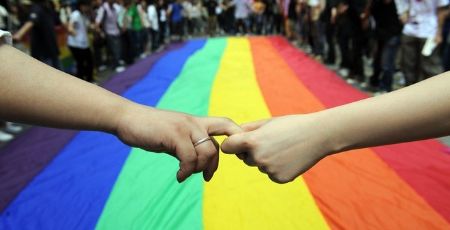It’s a disturbing set of statistics. HIV diagnosis rates in Hong Kong have climbed over the past decade, unlike in other places in the world where there has been a consistent fall in the numbers of new HIV cases.
Between 2010 and 2016, the annual number of new HIV diagnoses in Hong Kong increased by nearly 80 per cent, to a total of 692 new cases in 2016. By contrast, between 2010 and 2017, the annual rate of new HIV diagnoses declined by 14 per cent in Asia and the Pacific as a whole.
Meanwhile, Hong Kong’s annual government expenditure on HIV prevention policies has soared in an attempt to address this entrenched health scourge. By 2020, prevention costs are projected to reach HK$400 million
Between 2010 and 2016, the annual number of new HIV diagnoses in Hong Kong increased by nearly 80 per cent, to a total of 692 new cases in 2016. By contrast, between 2010 and 2017, the annual rate of new HIV diagnoses declined by 14 per cent in Asia and the Pacific as a whole. Meanwhile, Hong Kong’s annual government expenditure on HIV prevention policies has soared in an attempt to address this entrenched health scourge. By 2020, prevention costs are projected to reach HK$ 400 million.
Statistics show a solid majority of HIV diagnoses in Hong Kong have been in the group of men who have sex with men (MSM). Dr Tim Brown, HIV epidemiologist from the East West Centre in Hawaii, once characterised HIV in Hong Kong as an epidemic within that group.
To read more, click here!












 打印版本
打印版本



















读者回应
"it is a mistake to ignore global political contexts when presenting LGBT issues."
I entirely agree with you. Equally I think it is important not to forget local cultural and social norms when working to try and make change.
Hong Kong under its colonial administration constantly refused to change the old English Victorian law making sodomy a criminal event. The argument used was that the majority (92% +) Chinese community would never accept it. Yet there was a large outcry in the Chinese media when it was discovered that the government had set up a Special Unit to root out senior civil servants who happened to be homosexual in 1980. The uproar led to the Law Reform Commission advocating the change of that law and decriminalising homosexuality. It took until 1990 but when Hong Kong's was drafted by Britain and China, both governments agreed to the law being changed. There was no outcry this time from the Chinese population.
The spread of HIV has much to do with social norms and the lack of education. The sad fact is that after the major efforts by governments in the 1990s and early 2000s to ram home the message of how HIV is spread and the vital importance of safe sex, most countries in Asia reduced their HIV education budgets. I believe, sadly, we are now seeing the results.
请先登入再使用此功能。